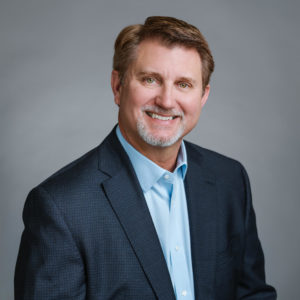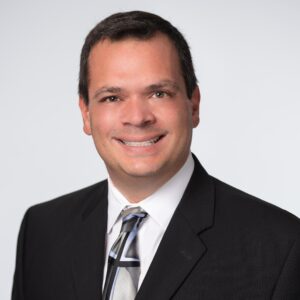Successful recruitment strategies should start with what compels your current employees to stay, said Peter Schuna, NHA and Chief Operating Officer at Minnesota-based Pathway Health, who participated as a panel members at Young Professionals roundtable session at this week's American Health Care Association/National Center for Assisted Living (AHCA/NCAL) Annual Conference and Expo in San Antonio, Texas. Long-Term Living caught up with Schuna after the session to talk about his own career path and strategies he's used to recruit and engage multiple generations of workers.
Q: It sounds like you stumbled into nursing home administration.
A: I would say yes and no. My mother is the founder and CEO of the company that I run today, Pathway Health, so I've been around skilled nursing facilities, she was the director of nursing, since I was a little kid. I wasn't scared to go in one, I just had a desire to go into a different career path.
I have a bachelor of science in biology. The only jobs I could find when I graduated were in testing and labs. I didn't have any desire to do that, so I worked in the office (at Pathway Health). I worked with, to be honest, some of the worst in the country. I don't know why, but that really set something firm in me to take a direction to improve our industry and the standards that we have.
Q: Today's round table was focused on young professionals. As someone who entered the field right out of college, what attitudes did you bring with you on how business should be conducted?
A: There was a lot of talk today about generational type differences. A lot of people said you have to be aware of them, but I think there are many things that are in our industry, too, that don't have anything to do with what generation you're from. There's core principles on caring for individuals. You need to find employees that understand that responsibility and take it to heart because that's how you're going to be successful as an organization.
When I first started in the industry, that's one of the things I really tried hard to do. I tried lots of different things but was really trying to find ways to connect with employees on a personal level so they understood the responsibility and the privilege of being a member of a skilled nursing facility or whatever it might be. If you really think about it, we're housing and caring for America's history in those buildings. There's so much to learn and it's such an opportunity to learn from residents. I kept trying to communicate how much value there is, how much understanding and the wonderful things you can learn from working here besides just getting a paycheck, compared to working at a fast food restaurant.
Q: What advice do you have for readers who might be in a position to recruit or encourage people who might not have intended to work in long-term care?
A: I would say the first thing to do is focus on retention. Go in, look at your own employees and figure out how you're going to keep your employees. I think if you focus on that retention first, you'll easily figure out the ways, tools, profiles, qualities, whatever it might be, to recruit young professionals into your organization once you realize what your internal culture is, what it means to be an employee at your place, why people stay and why people go. I think once they have that internal reflection, that's when they'll be a lot more successful on recruitment. That's what I've done in the past for organizations that I've run.
I've made mistakes when I just thought I could go on 'I know what I'm looking for.' You don't know until you've really looked inside and figured out 'What is our culture? How do we operate?' You can be really good at one place and move to another place and be a complete failure because you haven't taken the time to understand what's unique even though we're really doing a lot of the same functionalities. There's millions of different people in the world, and you have to recognize they're all different.
Q: You mentioned you have equipped your facility with a lot of technology, that it's important to you personally and perhaps to a younger workforce. What advice would you give to other facilitties?
A: I would say the biggest thing is remembering that our industry, to get paid, to get regulated, be successful, someone has to physically touch another human being in a respectful manner. That for me is the key: deciding who you hire, what technology you implement, how you implement it, how you train your staff, how you show them how to use it, how you make the technology better.
There's lots of technology out there. A lot of the core functions have nothing to do necessarily with actually performing the care. They have to document the care that's been done, so you really need to think about how those interactions happen with the resident. If you think about those, then I think how you implement technology and what you implement will be guided pretty well.
Nicole was Senior Editor at I Advance Senior Care and Long Term Living Magazine 2015-2017. She has a Journalism degree from Kent State University and is finalizing a master’s degree in Information Architecture and Management. She has extensive studies in the digital user experience and in branding online media. She has worked as an editor and writer for various B2B publications, including Business Finance.












